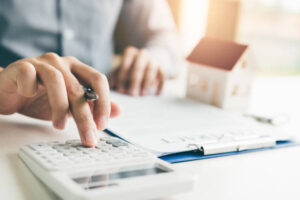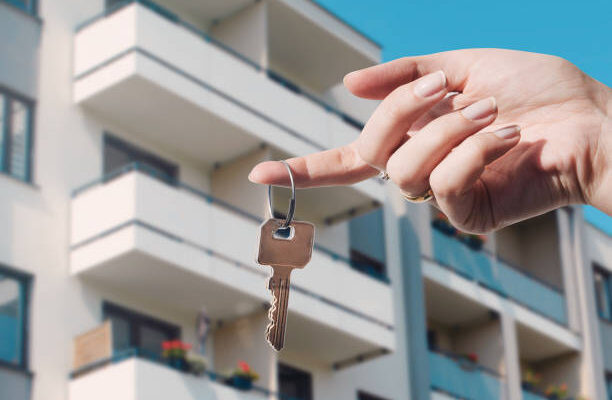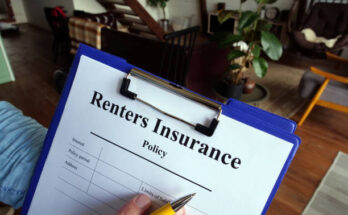Renting an apartment is a significant step in many people’s lives. Whether you’re a first-time renter or a seasoned tenant, the process can be both exciting and overwhelming. To ensure a smooth and successful experience, it’s crucial to approach the apartment-hunting journey with careful consideration and preparation. In this comprehensive guide, we’ll explore essential tips for renting an apartment, covering everything from budgeting and location to lease agreements and maintenance.
-
Establish Your Budget
 (Photo from iStock)
(Photo from iStock)
Before diving into the apartment search, it’s imperative to establish a realistic budget. Consider your monthly income, taking into account all sources, and evaluate your expenses. The general rule of thumb is to spend no more than 30% of your income on rent. This includes not just the base rent but also utilities, parking, and any additional fees.
Create a comprehensive budget that covers rent, utilities, groceries, transportation, and other essential expenses. This will give you a clear picture of your financial situation and help you determine the maximum amount you can allocate for rent without compromising your overall financial stability.
-
Research Neighbourhoods
Choosing the right neighbourhood is as crucial as finding the perfect apartment. Different areas offer varying amenities, safety levels, and lifestyles. Research neighbourhoods that align with your preferences and needs, considering factors such as proximity to work or school, public transportation, local services, and overall safety.
Take the time to explore each potential neighbourhood during different times of the day to get a feel for the atmosphere. Speak with current residents, visit local businesses, and read online reviews to gather as much information as possible. Additionally, consider the long-term aspects of the neighbourhood, such as future development plans and property value trends.
-
Define Your Must-Haves and Deal-Breakers
Before beginning your apartment search, create a list of must-have features and deal-breakers. This list will act as a guide during your search and help you quickly eliminate options that don’t align with your preferences. Must-haves might include the number of bedrooms, pet-friendliness, parking availability, or proximity to public transportation. On the other hand, deal-breakers could be outdated appliances, insufficient storage space, or a lack of security features.
Having a clear understanding of your priorities will streamline the apartment-hunting process and save you time by narrowing down your options to those that meet your specific criteria.
-
Start Early and Be Prepared
The apartment rental market can be competitive, particularly in popular or high-demand areas. To increase your chances of securing your desired apartment, start your search early. Begin at least a month before your planned move-in date, if not earlier. This gives you ample time to explore options, compare prices, and submit applications without feeling rushed.
Be prepared with all the necessary documentation when applying for an apartment. Most landlords require proof of income, a rental application, references, and, in some cases, a credit report. Having these documents readily available will expedite the application process and demonstrate to landlords that you are a responsible and organized tenant.
-
Conduct a Walk-Through Inspection
 (Photo from iStock)
(Photo from iStock)
Before moving in, schedule a walk-through inspection with the landlord or property manager. This is an opportunity to document the condition of the apartment and identify any existing damages or maintenance issues. Take photos or videos during the walk-through and create a written record of any concerns.
Ensure that all appliances are in working order, check for water leaks, and inspect the overall cleanliness of the unit. If you notice any issues, bring them to the attention of the landlord and request that they be addressed before you move in. This documentation will protect you from being held responsible for pre-existing damages when you eventually move out.
-
Establish a Good Relationship with Your Landlord
Building a positive relationship with your landlord can contribute to a more enjoyable and stress-free living experience. Communicate openly and promptly about any concerns or maintenance issues, and be respectful of the property and its rules.
Set up a reliable payment system, whether it’s through online platforms or traditional methods, to ensure that you consistently meet your financial obligations.
-
Purchase Renter’s Insurance
While your landlord’s insurance may cover the building itself, it won’t protect your personal belongings. Renter’s insurance is a relatively inexpensive way to safeguard your possessions in case of theft, fire, or other unforeseen events. It also provides liability coverage in case someone is injured while on the property.
Shop around for renter’s insurance quotes, and choose a policy that provides adequate coverage for your belongings. Having renter’s insurance not only protects your personal property but also provides peace of mind in case of unexpected emergencies.
-
Stay Informed About Maintenance and Repairs
Understanding how maintenance and repairs are handled in your rental property is crucial for a smooth living experience. Before signing the lease, clarify the process for reporting issues and the expected response time from the landlord or property management.
Keep a record of any maintenance requests you submit, including the date and details of the issue. If the landlord fails to address a recurring problem, familiarize yourself with the legal steps you can take to ensure your living conditions remain safe and habitable.
Conclusion
Renting an apartment is a significant decision that requires careful consideration and preparation. By establishing a realistic budget, researching neighbourhoods, and defining your must-haves and deal-breakers, you can streamline the apartment-hunting process. Starting early and being prepared with the necessary documentation will increase your chances of securing your desired rental.
Thoroughly understanding the lease agreement, conducting a walk-through inspection, and knowing your rights as a tenant are essential steps to protect yourself during your tenancy. Building a positive relationship with your landlord, purchasing renter’s insurance, and staying informed about maintenance and repairs contribute to a smooth and successful apartment renting experience.
Remember, taking the time to be well-informed and proactive will not only help you find the right apartment but also ensure a positive and enjoyable living experience throughout your tenancy.




